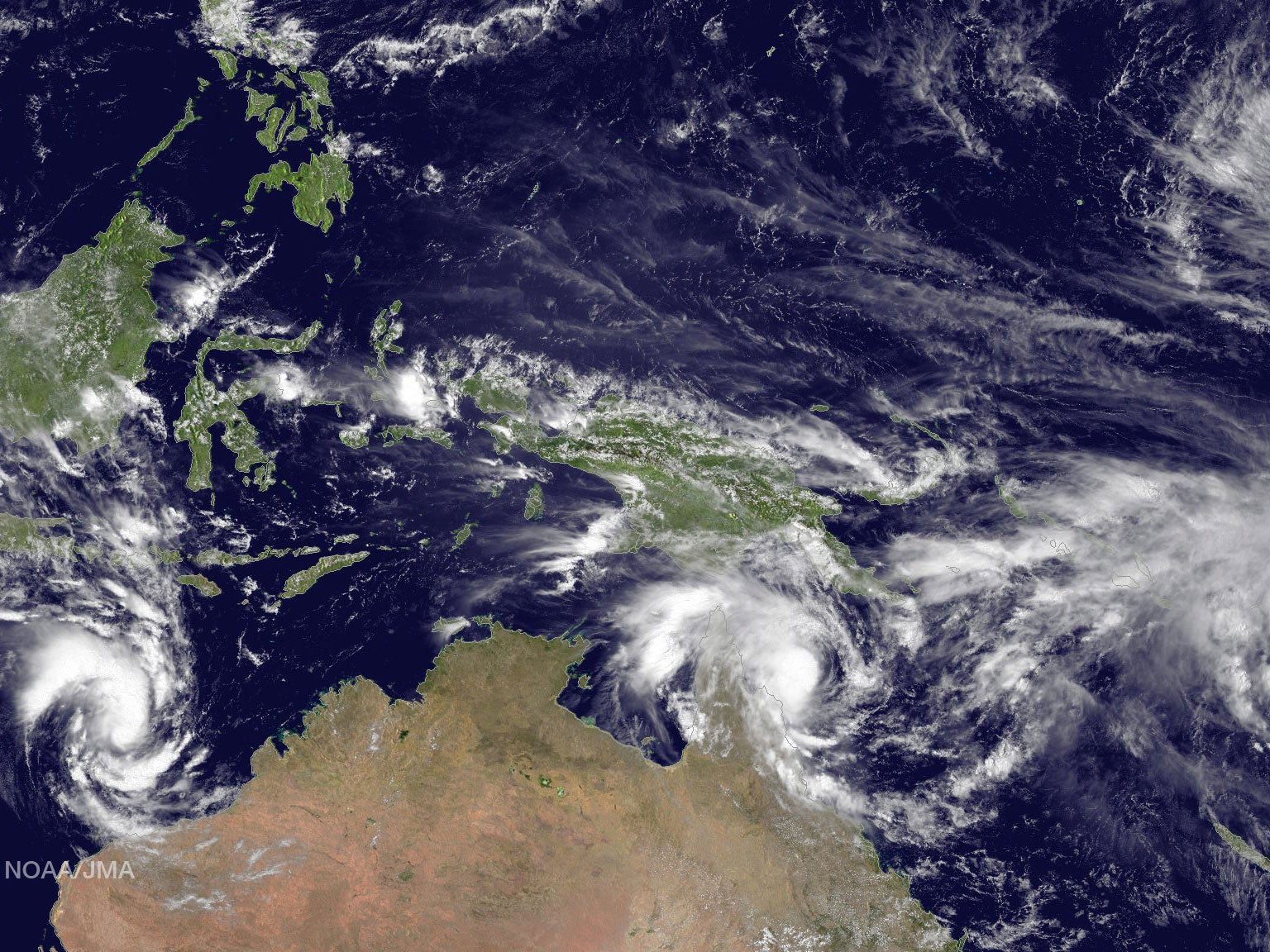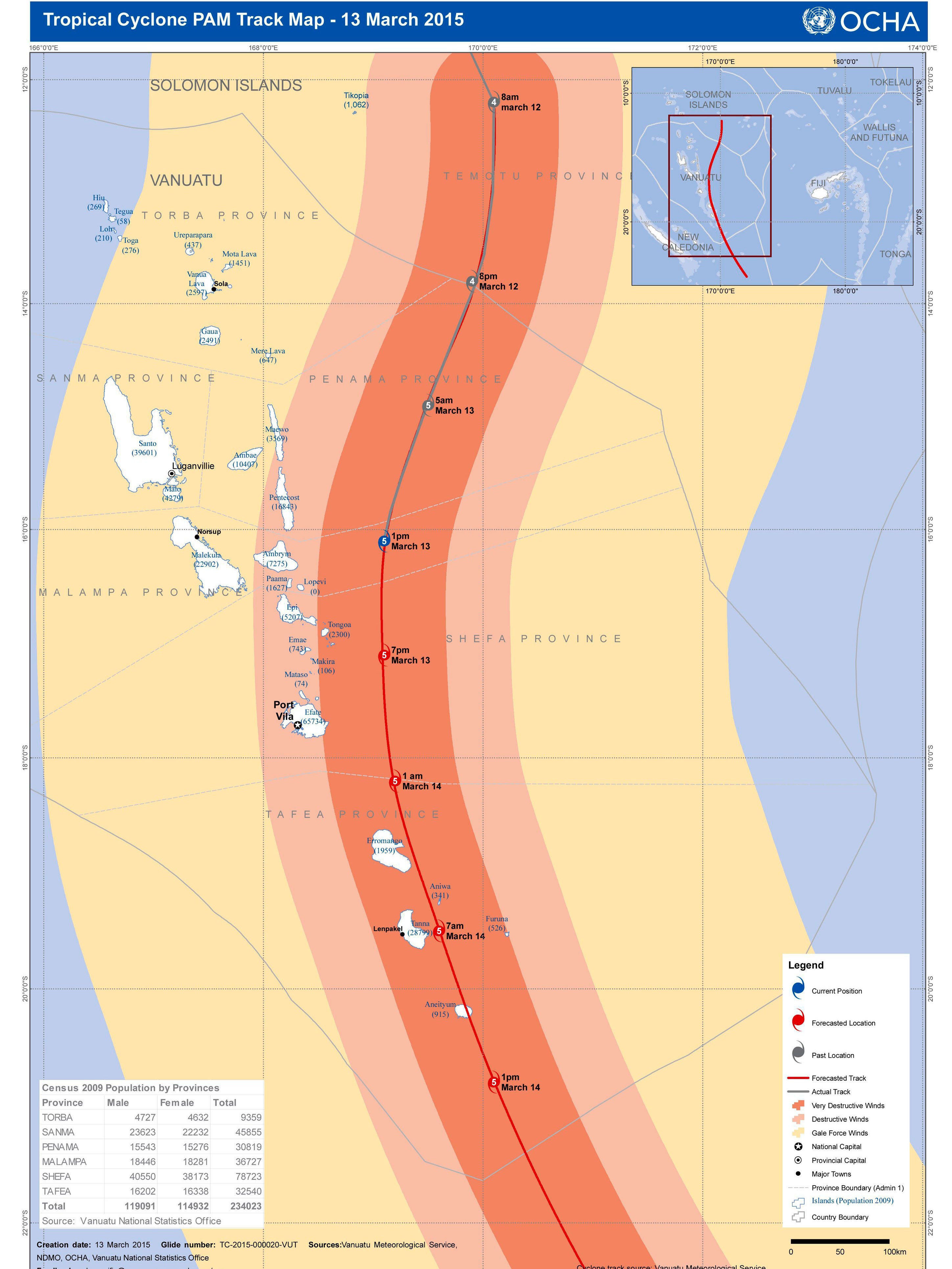Cyclone Pam: Vanuatu in panic over 'once-in-a-lifetime' storm bearing down on South Pacific island
The island's capital, Port Vila, has gone into lockdown ahead of expected 280km/h winds

Your support helps us to tell the story
From reproductive rights to climate change to Big Tech, The Independent is on the ground when the story is developing. Whether it's investigating the financials of Elon Musk's pro-Trump PAC or producing our latest documentary, 'The A Word', which shines a light on the American women fighting for reproductive rights, we know how important it is to parse out the facts from the messaging.
At such a critical moment in US history, we need reporters on the ground. Your donation allows us to keep sending journalists to speak to both sides of the story.
The Independent is trusted by Americans across the entire political spectrum. And unlike many other quality news outlets, we choose not to lock Americans out of our reporting and analysis with paywalls. We believe quality journalism should be available to everyone, paid for by those who can afford it.
Your support makes all the difference.A 'once-in-a-lifetime' storm is expected to bear down on the tiny South Pacific island of Vanuatu, putting the population of 260,000 at risk.
Cyclone Pam was due to hit the island's capital, Port Vila, at around 11pm Friday (12 noon GMT).
The anticipated category five storm, with predicted wind gusts of more than 280km/h, prompted evacuations across the country as aid agencies warned of torrential rain, landslides and flash flooding.
Cyclone Pam has already hit Tuvalu, Kiribati and the Solomon Islands, causing significant damage.
According to The Guardian, local sources reported that "panic" was setting in ahead of the extreme weather, with hotels ordering guests into underground bunkers, and 12 evacuation centres swiftly filling up.
Unicef, which has aid workers and supplies on the ground in Vanuatu, warned that 260,000 people were in the middle of the potential disaster zone as the Vanuatu National Disaster Management Office announced a red alert in the major northern provinces. It urged residents to seek immediate shelter.
Care Vanuatu’s program manager Charlie Damon told the newspaper that one of her colleagues had helped 195 people into evacuation centres alone, including three people with disabilities.
“He did say there was a bit of panic in the centre,"she said. "They’re nervous, particularly with the noise because there’s more rubbish flying around [in Port Vila]. On the other islands it’s tree branches and coconuts."
Read more: Surfers make the most out of powerful Cyclone Marcia by riding the high tides in Australia
Read more: Climate change: Summer storms will give way to heatwaves and drought across Europe
Read more: Cyclone Marcia: Catagory 5 storm rips off roofs, uproots trees and damages power lines within hours of Cyclone Lam hitting
She said that the teams had made sure of access to water, employed young people to cook and cut down surrounding trees and had designated single-sex toilets "for the protection of women and children".
Unicef’s Pacific spokeswoman, Alice Clements, said that the cyclone could create large storm surges which “behave pretty much like a tsunami”, TVNZ reported.

She said that conditions were getting "wilder by the minute" in Port Vila and warned that houses on the country's outer islands, which are traditionally made of light timber with thatched roofs, were unlikely to stand up to the storm.
Read more: Brisbane 'Supercell' storm: Huge clean-up begins in Queensland
Read more: Typhoon Haiyan: the Philippines marks one year anniversary of the storm that claimed 7,300 lives
Vanuatu Meteorological Service’s acting director, David Gibson, told The Guardian that Pam would be the most powerful storm ever to bear down on Vanuatu.
“As far as I can remember, this is the first [category five] cyclone to come very close to Vanuatu,” he said. “This is obviously a once-in-a-lifetime experience for most of us.”
Join our commenting forum
Join thought-provoking conversations, follow other Independent readers and see their replies
Comments